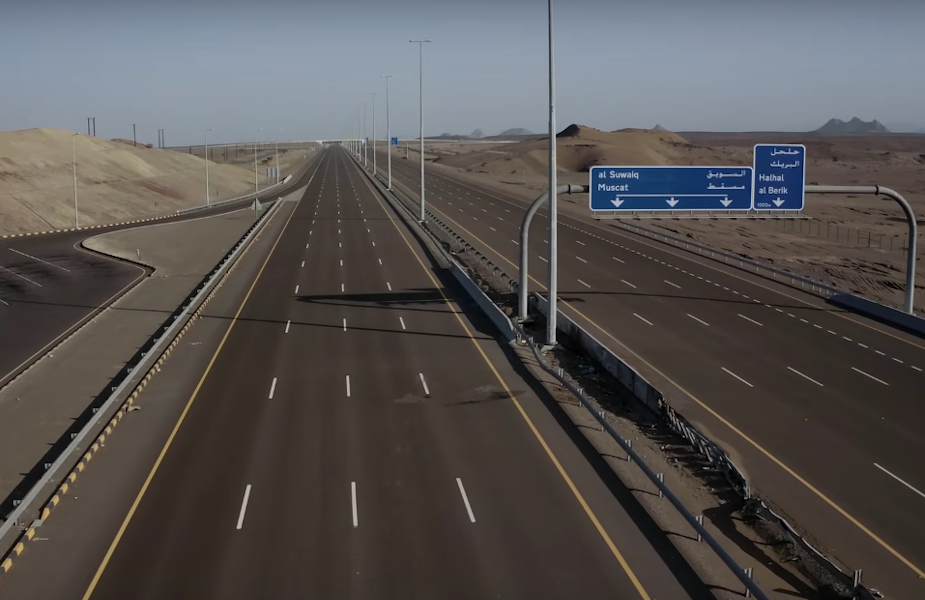
How a Long-term View of Covid-19 Inspired Nissan’s Ode To Empty Roads

In a world of uncertainty, there is one thing we know for sure and that is: we will be back. And nothing echoes this more than Nissan Middle East’s latest ad, aptly titled ‘Ode to Empty Roads’. The clever commercial takes viewers down some of Dubai’s busiest roads – only now there’s not a vehicle in sight. For such a well-established brand, this period of turmoil comes not as a challenge for them, but a way to look to the future and create a conversation to make sure they’re not forgotten.
With a mellifluous voice telling us to ‘bide our time indoors’ and remind us that ‘nothing, not even this, can tear us apart’, the minute-long advert is engaging and intriguing. The team at TBWA\RAAD Dubai for Nissan Middle East have created a campaign that is less about product and tech than it is about the lasting impact of emotional brand building. With the Covid-19 pandemic taking over the world, the brand has decided to echo the views of governments worldwide with the ‘Stay Home, Stay Safe’ message.
“With the spread of the COVID-19 and all its implications, it is only logical for brands at the moment to adapt their strategies to find meaningful ways to engage with consumers, and our strategy for Nissan was simple: What if a brand that has always promoted mobility solutions that allow people to drive smarter and safer, a brand that has always encouraged everyone to enjoy the driving experience on and off-road, tells people not to drive and encourages them to stay home and be safe?” says Ghassan Kassabji, managing director of Nissan United at TBWA\RAAD. “Nissan Middle East’s ‘Ode to Empty Roads’ film did just that and the public response has been overwhelmingly positive”.
The video ends with the poignant message of ‘till we meet again’, highlighting the fact that, although we are facing a global pandemic, it won’t last forever. We spoke to Ghassan about what he thinks brands should be doing for their long-term image during this time.
“Brands should start preparing for the inevitable recovery, preparing for possible long-term shifts in consumers’ values, attitudes, and purchasing behaviours. It is also crucial for brands not to go silent at this particular time. Any brand communication at this critical time must be very genuine, in touch with reality and empathetic.”
He adds that according to a 2011 Millward Brown Study, while brands that go dark in a crisis don’t necessarily suffer major shifts in brand perceptions, they can still suffer long-term damage. 60% of brands that stop marketing deteriorate on at least one key aspect. Such losses can herald problems in the future, since once declines set in they can be hard to reverse.
Despite the important message behind the ad, a team still had to work together – amidst social distancing – to create it. Ghassan says the agency embraced agility and put all of their efforts into working remotely. He explains: “The creative team behind the idea has worked hard to deliver the film, I’d like to thank them for their efforts. By using stock and existing footage, online music libraries, online VO recording and in-house editing, they were able to deliver the film in a short time. Our client Nissan has quickly approved it and the integrated Nissan United team at TBWA\RAAD deployed the film across social channels, continuously measuring responses. The entire process took less than four days.”
Due to the incredible time frame and relatively smooth production, ‘Ode to Empty Roads’ is now being adopted and localized by Nissan in other markets and countries, simply by replacing some of the street scenes with local footage. Thus this simple, yet effective, ad is relevant in multiple countries, and Nissan is at the forefront of promoting the Stay Home, Stay Safe campaign.
We finished off our chat with Ghassan to find out how the Middle East is responding to the COVID-19 outbreak. “The leadership of the United Arab Emirates have conveyed their capacity and readiness to address the challenge of the COVID-19 pandemic, reassuring the nation’s citizens and residents, and implementing the necessary measures to contain the virus, including a sterilization drive across the country. As a result, people are committed to staying home and have quickly adopted the recommended hygiene practices and precautionary measures to contribute to minimising the spread of the virus.”















